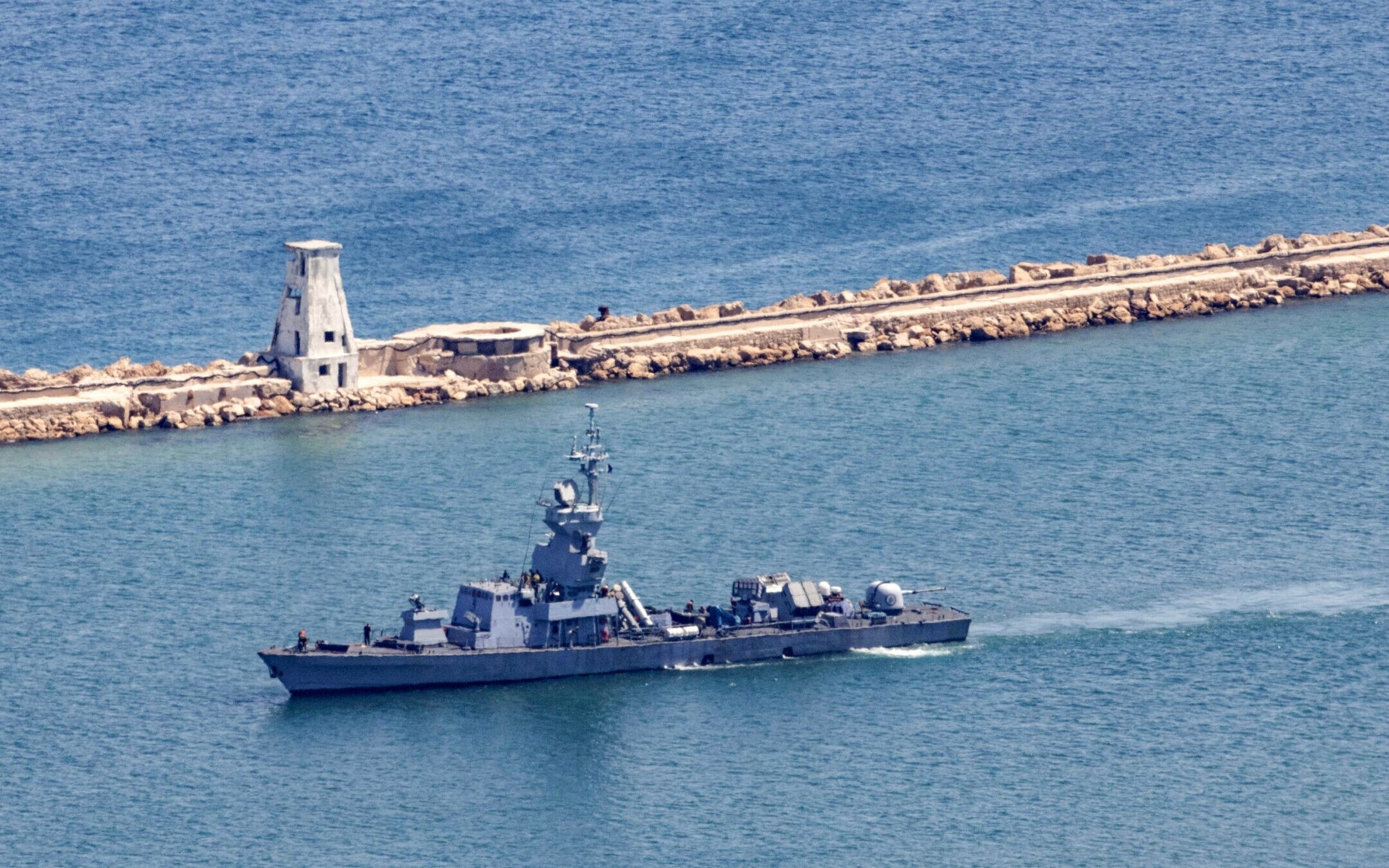Israel braces for another Iranian attack, with defense axis still being assembled
“We are in strong readiness for defense in the air, at sea and on land, and we are preparing for any sudden threat,” an IDF spokesman said

An Israeli Navy ship patrols along the coast of the Haifa amid regional tensions, Aug. 3, 2024. (Oren Ziv/AFP via Getty Images)
(JTA) — Many Israelis spent the weekend cleaning out bomb shelters and stocking up on supplies as officials warned of an imminent Iranian attack.
The country’s Home Front Command has launched a new text-message system to alert people in threatened areas, adding to the sirens and alert apps that Israelis already hear when rockets are incoming.
“We are in strong readiness for defense in the air, at sea and on land, and we are preparing for any sudden threat,” an Israel Defense Forces spokesman, Daniel Hagari, said in a briefing Monday morning.
The United States reportedly also believes an attack is imminent and is working to shore up a defense coalition, six days after Hamas leader Ismail Haniyeh was assassinated in Tehran. Secretary of State Antony Blinken told his counterparts from other countries on Sunday that he believed Iran and Hezbollah would work together and attack as soon as Monday, according to an Axios report.
Iran vowed to retaliate after Haniyeh’s assassination, widely attributed to Israel, which does not always claim credit for targeted killings abroad. Iran’s leaders are widely perceived as seeking to calibrate a response that would demonstrate strength without tipping the region into all-out war. In a sign of how delicate the situation is, Jordan sent its foreign minister on a rare trip to Iran where he said he warned against the “dangerous escalation taking place in the region.”
Meanwhile, a new billboard went up in Tehran’s Palestine Square bearing the Hebrew message, “You won’t have safety even in your bomb shelters.” Below the message is a photo of Israeli forces apparently running for cover.
An attack would be the second direct strike by Iran on Israel in just four months. In April, the first time that Iran fired directly on Israel following decades of mutual hostility, a coalition including the United States, Egypt and Jordan worked together to down hundreds of Iranian missiles.
The situation has caused many air carriers to cancel flights to and from Israel, leaving an untold number of people stranded abroad or unable to leave the country at a time of peak tourism. And Ireland has advised its citizens to refrain from traveling to Israel, while several countries, including the United States, have urged their citizens to leave Lebanon, where Hezbollah is based.
The situation has also left Israelis in a state of suspended animation, with most going about their business while also making sure they are prepared for any eventuality. Rockets detected from Iran would give Israelis several hours’ notice, while rockets fired by Hezbollah in Lebanon would come with warnings of only a few seconds in Israel’s north and a few minutes in other parts of the country.
“Israelis: Panic buying, psalms, texting loved ones to check if everyone has enough water,” posted Sarah Tuttle-Singer, an Israeli influencer and commentator based in Jerusalem, on Instagram. “Also Israelis: Nu, so coffee Tuesday?”
Meanwhile, Israel’s war in Gaza is ongoing. The IDF announced Monday that it killed Hamas’ economy minister there, and Hamas shot a barrage of missiles at Kibbutz Reim, the site of the Nova music festival massacre, lightly injuring a truck driver. Hezbollah, an Iranian proxy and Hamas ally, also shot a drone into the north that wounded two soldiers.
A message from our CEO & publisher Rachel Fishman Feddersen
I hope you appreciated this article. Before you go, I’d like to ask you to please support the Forward’s award-winning, nonprofit journalism during this critical time.
We’ve set a goal to raise $260,000 by December 31. That’s an ambitious goal, but one that will give us the resources we need to invest in the high quality news, opinion, analysis and cultural coverage that isn’t available anywhere else.
If you feel inspired to make an impact, now is the time to give something back. Join us as a member at your most generous level.
— Rachel Fishman Feddersen, Publisher and CEO